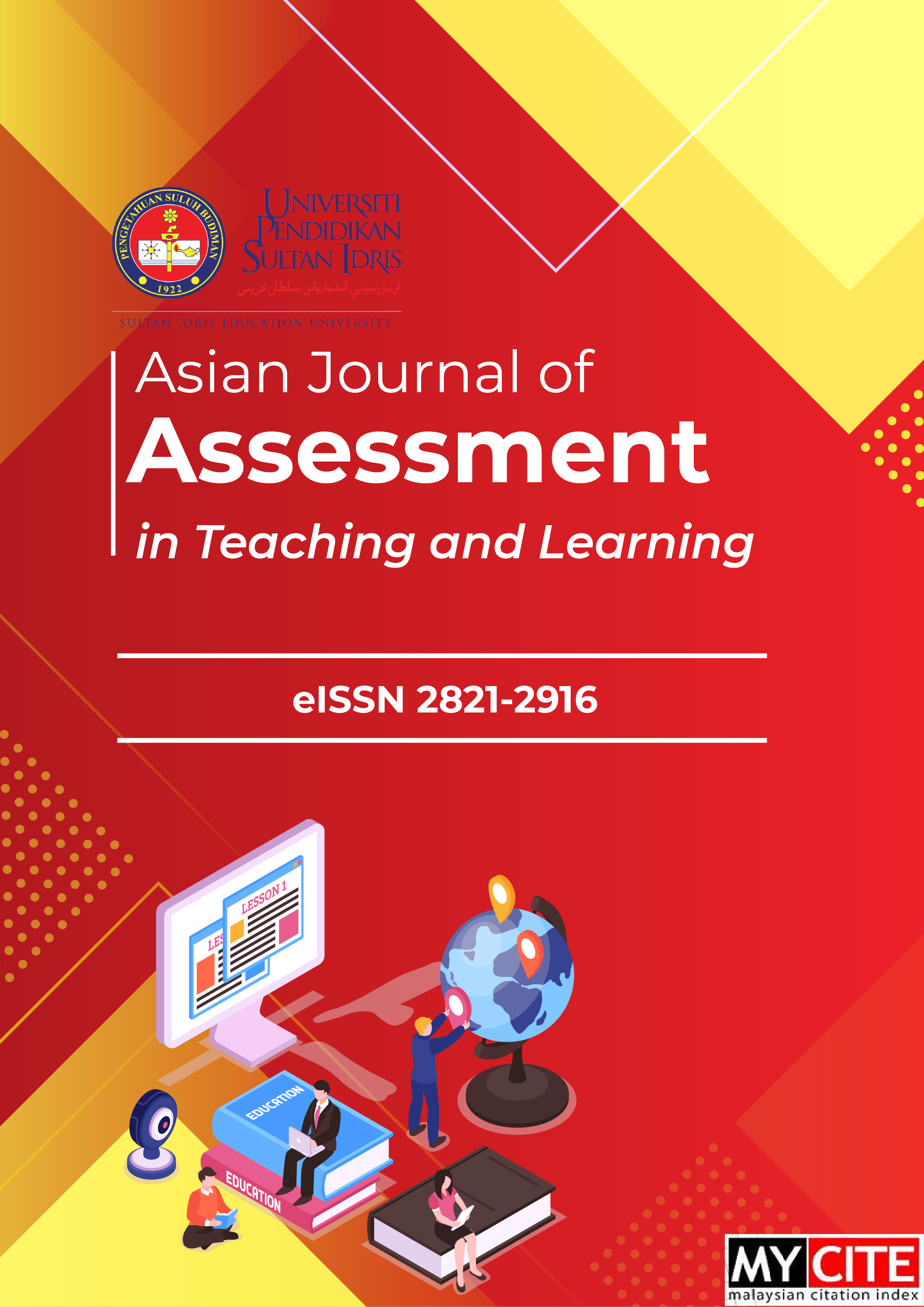The Level of Foundational Skills Application Among Graduate Employees in Edo and Delta States, Nigeria
DOI:
https://doi.org/10.37134/ajatel.vol11.1.9.2021Keywords:
Business Education Graduates, Employers of Labour, Foundational Skills, Graduate Employees, Low Level SkillsAbstract
This study aimed to assess the level of foundational skills of graduate employees in Edo and Delta States using Business Education) graduates as a case study. Three research questions and three hypotheses guided the study. Adescriptive survey research design was adopted for the study. The population was 1,016 supervisors with a sample size of 309 determined by using the proportionate stratified sampling technique. A structuredquestionnaire was used to collect data. Reliability of the instrument was determined by using Cronbach Alpha reliability method and an overall reliability coefficient of 0.79 was obtained. Data relating to the research questions wereanalyzed using arithmetic mean and standard deviations. The t-test was used to test null hypotheses at a 0.05 level of significance. The study revealed that the supervisors rated application of all the aspects of foundational skills by Business Education graduates to be moderately applied. From the findings, it was concluded that the level of application of foundational skills by Business Education graduates is inadequate to meet the demands of employers. Hence, the training received by graduates is insufficient to meet the challenges of the modern-day office and thereby inferring that graduates from other disciplines do not have the necessary training to meet with the challenges of modern-day office. Based on the findings of this study, the researcher recommended that the observed deficiencies in literacy and numeracy skills which constitute part of the foundational skills should be adequately addressed by revamping the general studies courses in general studies units in tertiary institutions.
Downloads
References
Association of Business Educators of Nigeria. (2003). Benchmark Minimum Academic Standards for Business Education Undergraduate Programme in Nigerian Universities.
Adeyemo, S. A., Ogunleye, A. O., Oke, C. O., & Adenle, S. O. (2010). A survey of factors determining the employability of science and technology graduates of polytechnics and universities in the Nigerian labour market. Journal of Science and Technology Education Research, 1(5), 99 - 106.
Aghenta, J. A. (1993). Principles and practices of educational planning. Focus on the Developing Countries, Benin City. Nigeria Society for Educational Planning (NSEP). pp 40-41. [21] Nwagwu, N.A. (1998). Teacher’s militancy, productivity and standards in education today and in the future in prospects. The Nigerian Academy of Education Yearbook No.2 pp 182-190.
Akinyemi, S., Ofem, I. B., & Ikuenomore, S.O. (2015). Graduate turnout and graduate employment in Nigeria. Intentional Journal of Humanities and Social Sciences, 2(14), 257-265.
Andrews, J., & Higson, H. (2008). Graduate employability, 'soft skills' versus 'hard' business knowledge: A European study. Higher Education in Europe, 33(4), 411-422.
Asuquo, A. E., & Agboola, B. M. (2014).Nigerian universities outputs and their employability in the labour markets in South-South, Nigeria.American Journal of Educational Research, 2 (12),1244-1249.
Christian, O. I (2017). Globalizing Business Education Curriculum Experiences in Nigeria Higher Education for Enhanced Students’ Employability. European Journal of Business and Innovation Research, 5(5). 47-57.
CISCO. (2008). CISCO White paper on equipping every learner for the 21st Century. Retrived from http://www.cisco.com/web/about/citizenship/socio-economic/docs/GlobalEdWP.pdf
Confederation of British Industry. (2009). Future fit: preparing graduates for the world of work. London: University press.
Conference Board of Canada. (2000). Employability skills 2000+. Conference Board of Canada. Retrieved June, 2009 from http://www.conferenceboard.ca/nbec/pdf/esp2000.pdf.
Dabalen, A., Oni, B., & Adekola, O. A. (2000). Labour market prospects for university graduates in Nigeria. World Bank: Nigerian institute of social and economic research.
Hager, P., Holland, S., & Beckett, D. (2002). Enhancing the learning and employability of graduates: The role of generic skills.Melbourne:The Business/Higher Education Round Table.
Ogboro, I., & Nwadiani, M. (2017). Deployment and Utilization of Graduate Teachers and Performance in Nigeria: Public Secondary Schools Experiences in Edo State.” American Journal of Educational Research, 5(8), 917-926. doi: 10.12691/education-5-8-12.
Jonck, P. (2014). The mitigating effect of work-integrated learning on graduate employment in South Africa. African Education Review, 11(3), 277-291.
Jonck, P., & Minaar, R. (2015).Validating an employer graduate-employability skills questionnaire in the faculty of Management Sciences.Mediterranean Journal of Social Sciences, 6(2), 230-237.
Nwagwu, N. A. (1998). Teacher’s militancy, productivity and standards in education today and in the future in prospects. The Nigerian Academy of Education Yearbook, 2,182-190.
Okpiaifo, D. (2016). Employment and employability. Independent Newspaper Limited.
Oviawe, J. I., & Lukmon, A. (2017). Workplace skills in technical education as a catalyst for producing employable graduates in the 21st Century. IOSR Journal of Research & Method in Education, 7(3), 1-8.
Partners in Education Transformation. (2010). Partners in Education Transformation white paper on transforming education: Assessing and teaching 21st Century skills. Retrieved from tc21s.org/wp…/Cisco-intel-Microsoft-Assessment-Call-to-Action.pdf
Petronella, J., & Renee, M. (2015).Validating an employer graduate-employability skills questionnaire in the faculty of management sciences.Mediterranean Journal of Social Sciences, 6(2), 230-237.
Rosenberg, S., Heimler, R., & Morote, E. (2012). Basic Employability Skills: A Triangular Design Approach. Education and Training, 54(1).7-20.
SCANS. (2000). Skills and task for jobs, A SCANS Report for America. Washington, D.C.: U.S. Department of Labour.
United Kingdom Commission for Employment and Skills (UKCES). (2011). Employers skills survey. Retrieved from https://www.ukce.org/publicationandresources/NewsIetters/intelligence/..issue-11.
Downloads
Published
Issue
Section
License
Copyright (c) 2021 M. E. Osahon, Imafidon Adesuwa

This work is licensed under a Creative Commons Attribution-NonCommercial-ShareAlike 4.0 International License.





